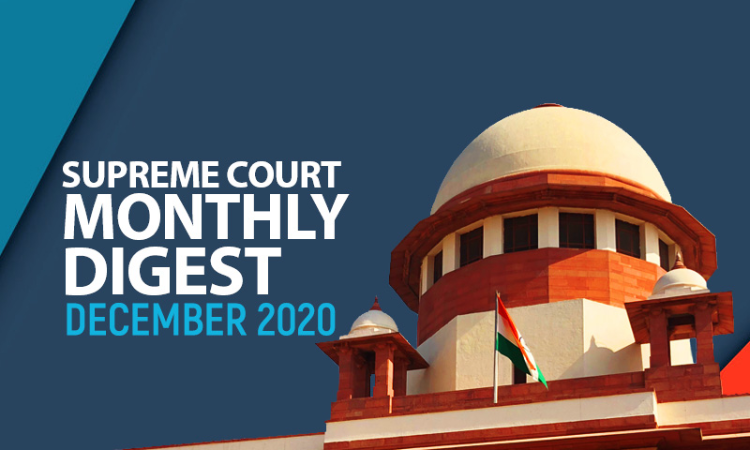Next Story
28 Dec 2020 11:55 AM IST
Important Judgements/Orders: 1. High Courts Having No Commercial Division Competent To Consider Cancellation Of Design Under Section 22(4) Of Designs Act: Supreme Court Order dated December 1, 2020 The Supreme Court discussed the interplay between the Designs Act, 2000 and the Commercial Courts Act, 2015. A bench comprising Justices L Nageswara Rao, Hemant Gupta and...

